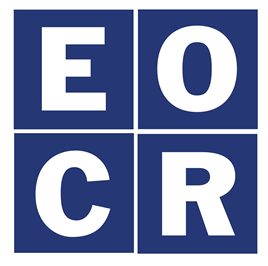The Role of a Search Committee “Equity Coordinator”
It is the responsibility of every hiring official and search committee member to actively participate in establishing a search plan and process which places principles of equity and inclusion as core elements of a successful and ethical recruitment and selection effort. As individuals come with a spectrum of knowledge, experience, and socio-cultural frames – it can be helpful, especially in committee environments, to designate an individual connected to the process as an “Equity Coordinator”. This individual is expected to take on the responsibility of building a deep knowledge base, through internal and external sources, on understanding how to proactively encourage processes which mitigate the impact of implicit bias and establish a framework for equality of opportunity in competition on the basis of merit.
Key Goals:
Conformity – While each search process will be different on the basis of the position, individuals involved, and specific School/Unit strategies and priorities – a key consideration is that the process conform to University policies and procedures, ethical standards, and federal and state law. This means that an Equity Coordinator will need to familiarize themselves with such considerations.
Clarity – In order for the recruitment and selection process to be successful, the Equity Coordinator will need to help the committee or hiring official ensure that there is clarity on multiple points. This includes clarity on the functions of the position, how candidates will be evaluated, what will be communicated about the position to candidates, and many other aspects of the process. Clarity comes from thoughtfulness, intentionality, transparency, and planning.
Consistency – A key to any process or practice is consistency. When objective screening criteria are created they must be consistently used for all candidates. If one candidate is given important information about the position, efforts should be made to ensure that other competitive candidates have access to that information. Interview participation and lines of inquiry should be as consistent as possible. Communications with applicants and candidates should be consistent.
Opportunity – The overarching goal for any recruitment and selection process is that all candidates are given an equal opportunity to compete on the basis of their specific knowledge, skills, experience, professional behaviors, and abilities that make them the best qualified individual to fill a specific position.
Critical Process Points:
There are a series of points in any selection process where key decisions are made, or that provide the search committee with critical information necessary to effectively evaluate the merits of individual candidates for a specific position. The process of defining the functions of the position is foundational to all other aspects of the process. The position is the key reference point as hiring officials and search committee members should consistently ground deliberative processes in what it takes to successfully perform the functions of the position. At each of the critical points below, the Equity Coordinator should help the hiring official and/or the search committee stay focused on meeting the goals of conformity, clarity, consistency, and opportunity. Building effective facilitation skills should be a key focus for the Equity Coordinator.
- Position Definition and Establishment of Evaluation Criteria
- Candidate Recruitment
- Candidate Evaluation
- Candidate Interviews
- Candidate Negotiations
- Search Documentation
Key Resources/Contacts
Internal
- UHR Center for Leadership Excellence – Provides a variety of learning opportunities to build skills in facilitating difficult or critical conversations, cultural fluency, emotional intelligence, and a variety of other topics. (https://leadershipexcellence.virginia.edu/)
- UVA Office for Equal Opportunity and Civil Rights – Provides a recruitment and hiring guide, information on labor market availability, consultation on search planning and processes, and tools for documenting the search. Additional information is available for considerations unique to the veteran and disability communities. (https://eocr.virginia.edu/recruitment-and-hiring)
- UVA Policy Directory – Provides access to relevant policies and procedures. (www.uvapolicy.virginia.edu)
- UHR Manager Toolkit – Provides information on process steps and considerations at each phase of a process. Also includes a guide on behavioral interviewing and a listing of recruitment resources to consider. (www.hr.virginia.edu)
External
re:Work Unbiasing – Google has published development materials that are reviewed with hiring managers at their organization which includes guides and tools. (https://rework.withgoogle.com/subjects/unbiasing)
Project Implicit – Provides an opportunity to participate in research studies which help raise awareness about individual bias. (www.projectimplicit.com)
Kirwan Institute – Provides links to articles and research related to implicit bias and annually publishes a “State of the Science Review”. (https://kirwaninstitute.osu.edu/researchandstrategicinitiatives/#implicitbias)
Professional or Academic Associations – Many discipline and profession specific associations will provide statements on the importance of diversity, equity, and inclusion or on ethical standards relevant to recruitment and hiring. Some examples are the American Association of University Professors and the Council of Colleges of Arts and Sciences “Ethics of Faculty Recruitment and Appointment”, The National Association of Colleges and Employers (focus on student hiring), and many others. Each of these will often, and should, align with legal standards including affirmative action standards in employment. These may be of interest for general reference and establishing a context more easily relatable to committee members but are not a substitute for University policies and procedures. Equity Coordinators should review association information specific to the discipline/postion being searched to help frame the issues.
College and University Professional Association for Human Resources – Provides learning opportunities around several critical processes in recruitment and selection. (www.cupahr.org)

